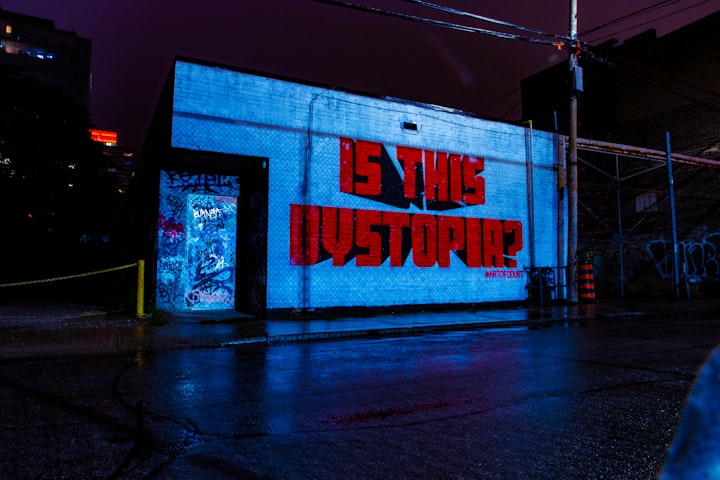
Fantasy is a fickle thing. Sugar to our minds, sweet and oh so addictive. It permeates us all in some way. From when the wheels first begin to turn and our brains start to think, fantasy fills our thoughts, allowing us to see our world and make sense of it. To understand people as characters, and why they do as they do. Fantasy is fickle, but so too is our reality.
By definition fantasy is a product of the imagination, especially when extravagant. But the imagination is of the individual. Individual fantasy and collective fantasy are two very different experiences. One is an expression of a wish, a desire, something to elevate or escape oneself from the material, from your own mortal coil. The other is certainly a trade on these individual desires to reflect reality in art. And the collective experience of fantasy is what we all flock to in some way. World building. Worlds on worlds.
Walls, shelves and screens are flooded with countless fantasy worlds. Some of these seem more explored than our own, but all of them do something for the imagination of those they entrance. Fantasy is feedback. Imagination turned to art, turned back to imagination. In fact some of these fantasy worlds are added to and grown outside of what the original artist had envisioned, often by scores of adoring fans. Many of the more well known fantasies have whole developed tangents, storylines following obscure and sometimes insignificant characters that enrich these worlds in which we mere humans as the audience are so invested. Canon and non-canon, authorised and fan fiction, these additions are a very real component of fantasy which adds so heavily to the endurance of some of our most beloved fantasy worlds. There are franchises in all mediums growing in strength today that are only made possible by these additions. Additions for addictions. And then there are modern tellings of fantasy worlds hurled into our collective imagination once more that can be very much thought of as additions in themselves. Interpretations. Adaptations.
To many of us fantasy is not about where it is based, but rather where it can take you. Fantasy as an internal journey. Despite the richness of the worlds the genre presents, to delve into fantasy is to connect with complex characters, complex narratives, and to find where your sympathies fall. Because of this, many of our takes on fantasy verge from the usual. Which begs the question, is there any kind of usual when it comes to fantasy?
The medium of film presents so successfully for creating fantasy, for its ability to craft physical universes by manipulating time and space, suspending disbelief, with editing and special effects. Film allows for fantasy to be represented beyond what the mind can process, to almost overwhelm an audience into capitulation, into willing acceptance of the world they are witnessing. The private experience of fantasy in prose can allow space for individual imagination, but rarely do we so completely develop the details we are described. Faces are obscure, perhaps based on people we are familiar with already. Locations are absent of all that background noise that film so greatly enhances a story with. Film creates the fantasies of our imagination, filling in the gaps, and turning the resolution up quite a bit. Film, like fantasy, fulfils the unconscious, almost vestigial need in our lives for magic and wonder. It appeals to the child in us as much as the adult, and this is where fantasy is most successful.
My take on fantasy follows a simple thread. If fantasy is a product of the imagination, then it can only be based on what is real. Reality. And what is real is our world. Our world gives shape and inspiration to what fantasy is, to what it can be. Whether this births purely fictional universes with their own rules and physics, or constructs more believable, eerily possible worlds, this all remains fantasy. Those fantasy worlds so closely accurate to what could become of humanity are the kind of fantasy that I have fallen in love with. The best fantasy world is, in fact, our own.
Here I present three cases of reality leading fantasy that do not require a huge leap of faith to fall for.
Children of Men
English author P. D. James published The Children of Men in 1992. It was, is, a dystopian novel describing a world faced with mass infertility, ironically set in our current year of 2021. The United Kingdom serves as the location of this tale, portraying the fear and urgency of the situation, one that we have seen grip us all so recently too.
This fantasy has many cautionary examples of politically divisive decrees, some solid political commentary, and an exceptional ‘what if’ premise which does not stray far from what could entirely occur in an age of so many unknowns. The film had many alterations to the written story, the most casual of which is the timestamp of 2027, and with its fenced, claustrophobic sense of state, it reminds us of the source of fantasy being equally based in fear as it is desire. Arguably, the best fantasy worlds capture both, utilising them to shock and hook an audience. Children of Men is disturbing, horrifying, and depicts what hope can do in a hopeless world with such contrast to what fantasy usually offers. It is this dangle of hope that has fed us for eighteen months now in reality, and which a story like Children of Men relates us back to. Or forward to.
The trailer above is a modern, reworked version, more true to the tone of the film. It replaces the laughably inaccurate example which first promoted this story. Based on our real world, Children of Men is an example of fantasy meant to startle, not satisfy. The selflessness of some characters and the zeal of others translate. For better or worse they all do what they believe to be right, and it is fantasy like this that blurs what ‘right’ actually is.
Brave New World
For anybody who has read the original material by Aldous Huxley, the recent Peacock series Brave New World is a sharp retelling of this story. Not nearly as philosophical, and with divisive reviews pointing to its rather sexy, sci-fi storytelling than anything deeper, this version of Brave New World presents another totalitarian, dystopian future. What I believe it portrays so perfectly is the immersion of a believable, flawed, character into a fantasy world of their own, at once making it so much more plausible too. The journey into fantasy is littered with missteps which we would no doubt all take faced with the same expanse of our imagination. Perhaps like the characters of this fantasy and their emotional dependency on the consumption of soma, I too have been caught in a euphoric glaze when it comes to this tale, in need of more. But it is the fallibility of man so expressed in Huxley’s book that I appreciate again in the series, this time without the racial tones. The world is enriched, reimagined, and expressed with warning, not merit.
The main characters in this adaptation do not hold so heavily to one particular standpoint as they do in the book. Lena is elevated to a much more deserving role of her character, no longer victim to misogyny, and John does not seem the menace that was morally charged of him by Huxley. Bernard’s journey is more painfully apparent and as a viewer we watch with unsure sympathies in a world we both yearn to be a part of and fear for its authority.
Brave New World captures the sentiment we collectively have for freedom and experience, indulgence and excess, particularly vibrant now in the state of the world as it is. That control of our lives, of our hours and our movements, the monitoring of it all whether Orwellian or not, is something wholly perceived during this pandemic. This series came at a time when fantasy and reality were already blending in dystopian tones, a grey world within which joy has been hard to perceive, and Brave New World was there with an imagining of what an organised society demanding gratification could become. This is a fantasy world so ripe for exploration, so entrancing, so consuming. It is fantasy fuelling imagination.
Inception
The playground of fantasy could be considered the dream world, that space between your subconscious and conscious mind where communication can often be a little ‘colourful’. The etymology of the word originates in the Greek phantasia, literally meaning ‘to make visible.’ It is because of this that I have included Inception here as the final example of fantasy as imagined reality.
This one is an easy jump. The assumption that the technology so quickly introduced in the film is real, can be real, and works. But once that acceptance is made the film is a triumph of reality itself. For most of us, imagination cannot do what special effects can, and in this regard Inception bends fantasy around reality. Literally.
Christopher Nolan is a powerhouse of fantasy. His films are always complex and original, sometimes confusing, but always stirring. With Inception he solidified the makings of his own fantasy world within which his style of storytelling was already finding a home. Inception was his worldwide coup. While his films do not exist in the same continuum they capture the sense of wonder that very quickly penetrates our imagination and cycles endless questions. How? What? Why? The basics of understanding, but which don’t necessarily need explaining for us to exist as participants in his universe. This is why his storytelling is so attractive, and why this fantasy is so appealing. His use of the real world as a place upon which his own has grown is precisely why I have included Inception in my argument here. The real world is fantasy. How much we can and cannot know is so limited, and when possibility becomes a little more than fiction in our minds then the dream world and real world merge. Like the story of Inception itself, it is difficult to know what is real. If we all had a spinning top, how many of us would actually set it spinning?
Inception ranks so highly amongst this particular collection of fantasy I have been describing because it places the viewer in their own minds. It is a subjective experience unlike so many other fantasy worlds. While we don’t necessarily participate, the questions are posed to us, questions about whether we are aware of our own reality. It sets the viewer to piece together their own meaning and wonder at dreams. I remember how many fan theories sprung up when Inception was released, how many versions of meaning were perceived. These were imagined. Dreamt. We are all dreamers in some way. Fantasy is at its most pointed when it allows us to stay in the dreaming space and let our subconscious translate for us. In this way Inception makes fantasy of our reality.
With these three examples of storytelling I have presented our reality as the staging ground of fantasy. Every tale ever told is born from this reality. Creativity evolves from the stories told before, the genres and styles. The real world is a dynamic place. A place of fear and desire, of imagination and ruin. A dystopia as much as utopia. It is a place of contrast upon which our societies progress and stumble, but it is this world from which fantasy is born and fantasy exists. As humans we enrich our storytelling by building relatable, believable characters inspired by those around us, by their faults and flaws, their strengths and skills. To connect with these characters is why fantasy succeeds. We must want these characters to meet their goal, to journey with them and understand them. We are children trying to make sense of it all. Our world is the best fantasy world there is because it fuels the imagination as fantasy should. Perhaps it is imagination itself, and we are simply the art.
About the Creator
Jason Sheehan
I am a conservation biologist, but words and creativity have always been my favourite tools. I like to integrate possibility with fiction in what I write. A spark quickly sets fire to my mind.
Many thanks, and please consider sharing.






Comments
There are no comments for this story
Be the first to respond and start the conversation.